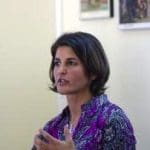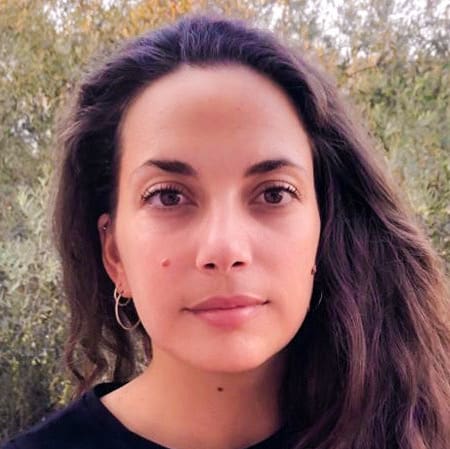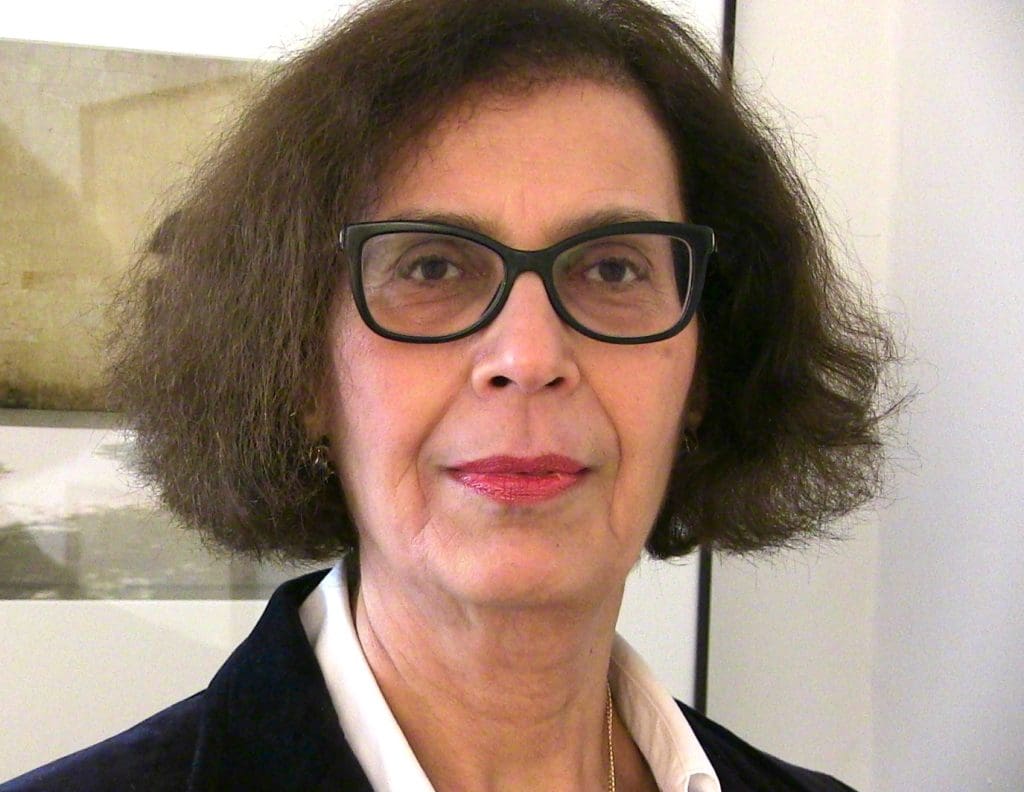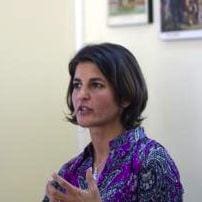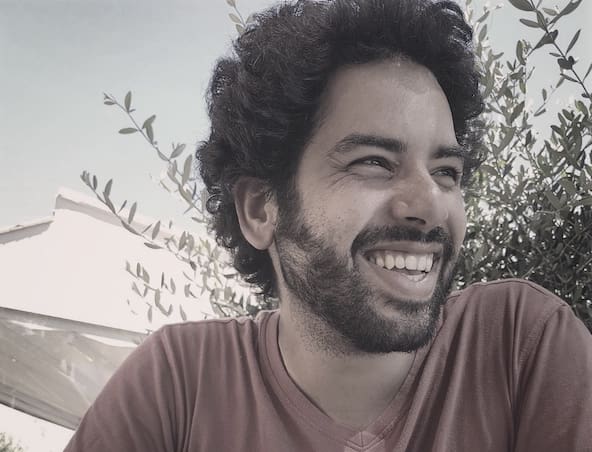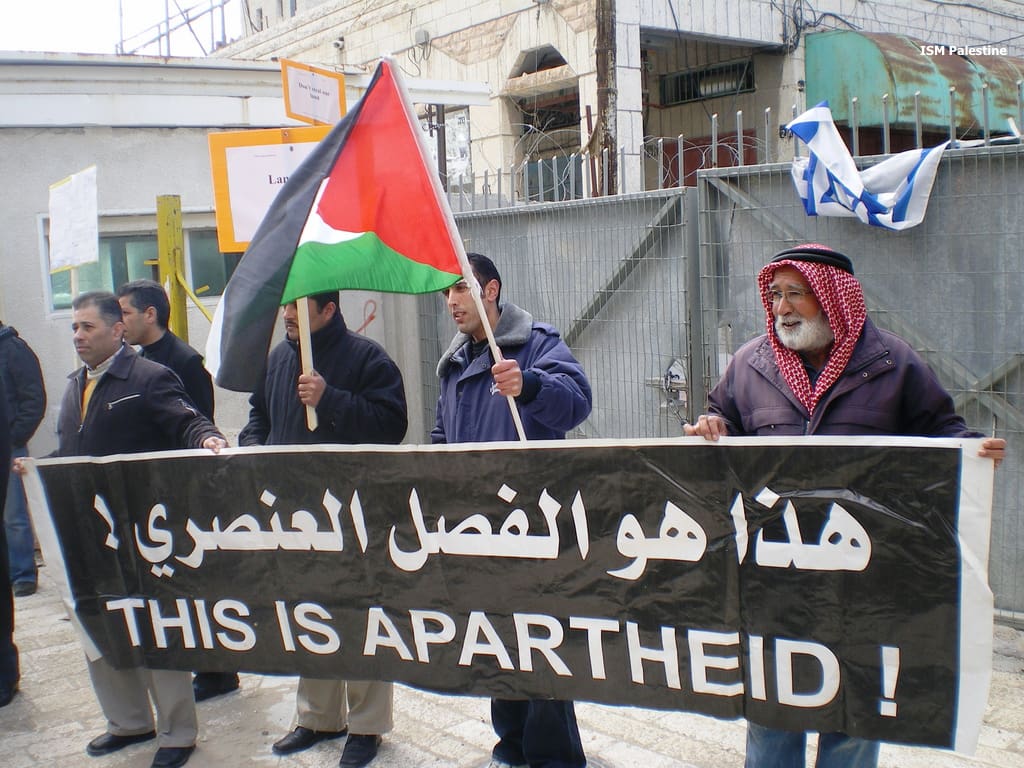
The Israeli right is poised to annex much or all of the West Bank while continuing to isolate Gaza – either through continued siege or by pushing it on to Egypt’s plate. Donald Trump’s stance on Jerusalem offers recognition of illegal annexation that could be just the beginning. And his drive to cut back the United States contribution to UNRWA could presage a campaign to definitively close the door on the rights of Palestinian refugees 70 years after Israel’s creation and the loss of Palestine.
Thus, it becomes even more important to pose the question: Is Israel’s treatment of the Palestinian people apartheid? Indeed, this is one of the most burning questions in the battle to control the discourse and in Israel’s efforts to shut down criticism of its policies of occupation and discrimination.
At the same time, there is a lively debate amongst Palestinians and in the Palestine solidarity movement regarding the use of the term apartheid. Is it the best framework of analysis to apply to Palestine and the Palestinians, as some proponents claim? Do those who use it fully understand its content and depth? What are the limits of the comparison between apartheid in South Africa and in Palestine – and has it really ended in South Africa? If not, what lessons remain to be learned?
These and other questions are tackled in a series of policy briefs and commentaries published by Al-Shabaka analysts in recent years. They are compiled below to shed light on the debate in advance of the major anniversary that looms in 2018: The Nakba, or catastrophe, 70 years ago when over 700,000 Palestinians fled or were driven from their homes and lands, years in which Israel has blocked their struggle to return.
Frameworks and Messaging
The Russell Tribunal on Palestine and the Question of Apartheid
By Victor Kattan
Victor Kattan describes what apartheid means under international law, highlights the third session of the Russell Tribunal’s findings, and explains the Tribunal’s significance. Can the Tribunal’s conclusion that Israel applies a system of apartheid to the entire Palestinian people, including its own citizens, stand up to scrutiny? Read more…
Talking Palestine: What Frame of Analysis? Which Goals and Messages?
By Nadia Hijab and Ingrid Jaradat Gassner
Nadia Hijab and Ingrid Jaradat Gassner argue that the multiplicity of frameworks of analysis describing the Palestine question creates confusion around goals and messages. They review the strengths and drawbacks of each and recommend the anti-apartheid framework as the most strategic method of analysis around which Palestinians can come together and work toward a clear set of goals. Read more…
Israel and South Africa: The Differences
Beyond South Africa: Understanding Israeli Apartheid
By Samer Abdelnour
Samer Abdelnour argues that the specific characteristics of Israel’s brand of apartheid need to be better understood in order to dismantle it. He reveals Israeli apartheid to be more sophisticated than that of South Africa and suggests directions to overcome it. Read more…
Refugees: Israeli Apartheid’s Unseen Dimension
By Hazem Jamjoum
Hazem Jamjoum discusses the differences between Israeli and South African apartheid, including the forced population transfer and denial of refugee return that lies at the core of Israeli apartheid. Read more…
Rethinking Definitions, Reframing the Struggle
Apartheid from Within? The Palestinian Citizens of Israel
By Yara Hawari
Yara Hawari examines the application of the term “apartheid” to the Palestinian citizens of Israel by focusing on citizenship, land, education, and politics. She also discusses whether such analysis can advance this community’s rights and counter fragmentation among Palestinians as a whole. Read more…
Rethinking Our Definition of Apartheid: Not Just a Political Regime
By Haidar Eid and Andy Clarno
Haidar Eid and Andy Clarno identify Israeli apartheid as an economic as well as political regime. They detail what the Palestinian liberation movement can learn from the South African condition in recognizing apartheid as both a system of legalized racial discrimination and a system of racial capitalism. Read more…
Beyond the Apartheid Analogy: Time to Reframe Our Palestinian Struggle
By Irene Calis
Irene Calis contends that rather than debate whether or not Israel qualifies as an apartheid state, it is more productive to draw lessons from the post-apartheid human condition in South Africa. Read more…
Al-Shabaka policy analysts are available for media interviews. Please email [email protected] for more details.







